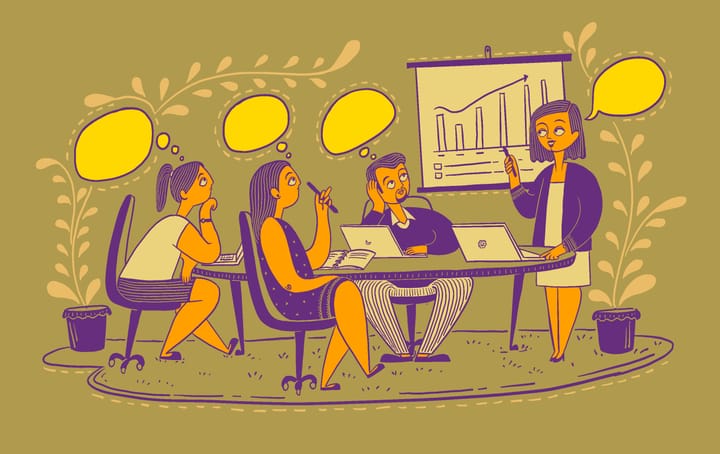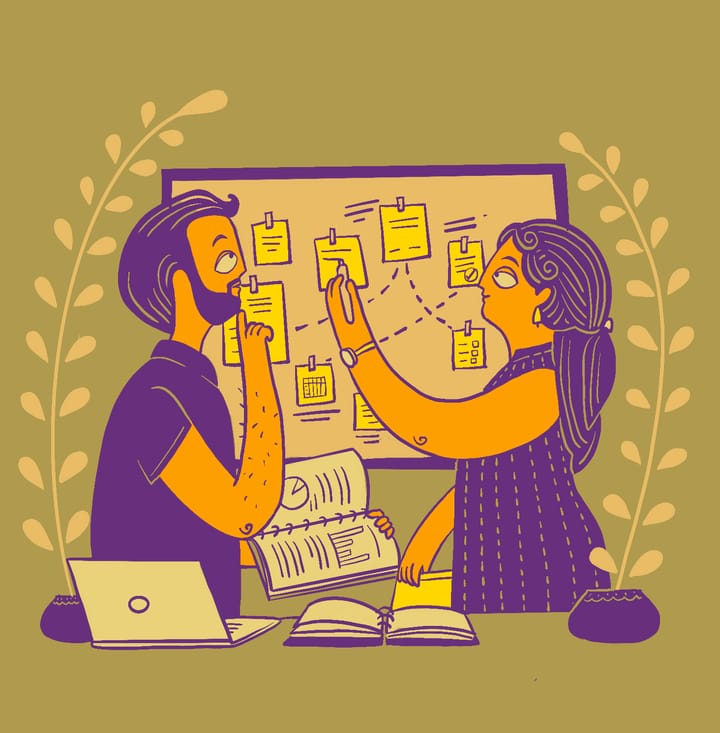Emotional Cues to Look For When Hiring an Employee
Smart employers look for more than a great resume; they look at emotional intelligence. Here are 11 cues you should be looking at when interviewing a candidate.

Candidates with impressive resumes are attractive to employers. But smart employers go above and beyond and look for candidates with emotional intelligence (EQ). Emotionally intelligent employees are more resilient, do well at collaboration, and make better team players. If you’re hiring in 2022, emotional intelligence is one of the top skills you should be looking for. But how do you know if the candidate in front of you has emotional intelligence? Certainly, it won't be listed in their resume! Here we have rounded up the top 11 emotional cues to look for when interviewing an employee.
Why should you consider emotional intelligence in job interviews?
Successful work teams share traits like strong communication, collaboration, and empathy. Incorporating emotional intelligence in your recruitment process can help you understand if the hire would be a good fit because people with higher EQ have better communication, collaboration, and empathetic skills than their peers. And hiring a good fit means less employee turnover and better productivity. Hiring candidates with higher EQ also helps you to understand if the candidate would be able to:
- remain calm under pressure,
- collaborate effectively,
- bring a growth mindset to their work,
- be comfortable with change or uncertainty,
- manage their own and their team’s wellbeing.
Emotional intelligence interview tips for recruiters
- Check for resilience
Don’t just ask candidates about their strengths and achievements in their past jobs. Ask about their failures too. How did they handle a job failure? If you’re interviewing someone with high emotional intelligence, they will talk about how they learned from their past mistakes and demonstrate a growth mindset. Pay close attention to their emotional response. Are they confident talking about their failures as much as their success? If yes, that’s your cue!
2. Look for people in constant ‘beta’ mode
Candidates with high EQ constantly work on themselves to upskill, take on positive feedback, and spend time on critical thinking and self-reflection. During the interview, go beyond the resume and ask how they implement feedback in their past jobs and what are the new things they have learned to keep up with the changing business dynamics.
3. Ask questions that evoke emotions
To gauge the emotional intelligence of a candidate, ask questions that evoke emotions. Pay attention to their body language while answering such questions. Here’s a list of questions that can help you start a conversation.
- Tell me an incident where you had to negotiate to get some work done.
- What do you do when you’re upset or frustrated at work?
- Talk about a project you’re particularly proud of.
- How do you deal with conflict at the workplace?
4. Look for candidates who are not afraid of the ‘awkward’ silence
Is the candidate rushing to answer all the questions? Or is the person taking some time to gather their thoughts and get their emotions under control in spite of that awkward silence? People with high EQ aren’t afraid to take pauses, even if they seem awkward, because they’re gathering their thoughts before they respond.
5. Look for a relationship builder
As a recruiter or a hiring manager, you might be interviewing hundreds of candidates every day. But not everyone will stand out. Look for candidates who are natural relationship-builders. Maybe they sent you a note after the interview or mentioned something they had liked about the company. Candidates who demonstrate such behaviours are high on EQ and are natural relationship-managers.
Also read: Principles of Providing Emotional First Aid at the Workplace
6. Asking relevant questions
An interview is a two-way process where both employer and employee need to understand if they are a good fit for each other. So, look for applicants who ask difficult questions because they have thought through and prepared well for this job. They may ask questions about how the company dealt with difficult situations in the past, or about the company’s culture and values and how it aligns with their personal values.
7. Look for people who are willing to learn from others.
It is great to have candidates who tick off all the skill boxes. But it is also important to have the willingness to learn from others. So, ask about what they have learned from their mentors or past colleagues. Look for candidates who not only talk about what they do well but also express the willingness to learn from others.
8. Talk about teamwork
Teamwork is a crucial element for any company to succeed. But teamwork doesn’t come naturally to many. Science says our competitive instinct and individual interests ride over teamwork. So, as a recruiter, you need to find candidates who thrive on teamwork. Ask them questions about their past roles in the projects – how did they collaborate with other employees/teams? Pay attention to how they attribute credit to others. All these are excellent signs and indicators of a great team player.
9. Pay attention to their attitude
High-EQ people have an action plan in mind rather than just smiling during an interview or agreeing with everything you say. So, consider asking questions like “how will you go about achieving X?” and see how they answer and note their general attitude towards it.
10. Check for their self-awareness
Is the candidate self-aware? Ask them to state an incident when they received negative criticism. Observe the words they are using to describe the situation. Note instances when they are getting offended. Do they still hold grudges? Ask them for an example of when they took up a self–improvement programme.
11. Check for empathy
One of the virtues of high EQ people is empathy. Are they able to recall incidents with empathy? How do they feel about other team members? Are they using empathetic words? Ask them to re-explain a situation. Candidates with high EQ will quickly get the cue and explain it more clearly.
Did you like these emotional intelligence interview tips?
As a recruiter or a hiring manager, you might want to tick off all the boxes for traditional skills. But pay close attention to candidates who demonstrate high emotional intelligence too. Remember, high emotional intelligence often translates to a highly resilient, motivated, collaborative, and high-performing employee.
Are you an HR or business head, an entrepreneur, or a team leader? If the well-being of your team is a priority, Manah can be your go-to partner. Do check out our services:
Wellbeing Ambassador Programme
Wellbeing Assessments for Employees
Employee therapy and counseling
Wellbeing challenges for organisations.



